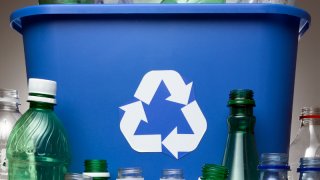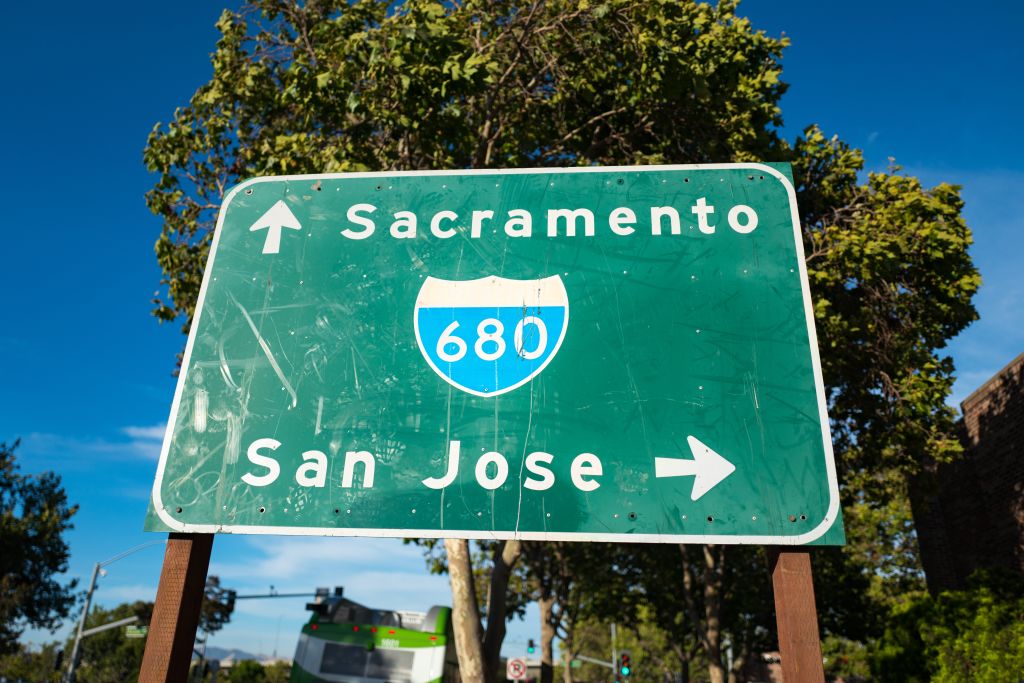
Bay Area trash and recycling companies are seeing dramatic shifts in residential and commercial collections as a result of efforts to slow the spread of the novel coronavirus.
Since shelter-in-place orders were issued on March 16, millions of people across the region have completely up-ended their normal daily routines.
Non-essential workers have been told to stay home, school campuses have closed and gathering places like bars, restaurants and cafes have all either completely shuttered or shifted to delivery and take-out service only.
This means most people are generating more waste at home while doing their own cooking or ordering out.
"We did see a shift with the commercial accounts," said Greg Christie, general manager with Bay Cities Refuse, which services Marin and parts of Contra Costa counties.
"Restaurants and office buildings, those types of businesses probably dropped like 80 or 90 percent," Christie said.
Offices and hotels have largely shut down in the wake of the COVID-19 pandemic and most restaurants went from six-days-a-week pick-ups to just one, Christie said.
Local
At the same time, residential pick-ups have stayed the same in terms of weekly routes but the amount of waste collected has gone up by at least 25 percent, as have recycling and compost volumes, Christie said.
"You lose all that weight off of the commercial (accounts) but it shifts somewhat to the multifamily and residential accounts," he said.
"In food waste, it was almost an even trade," Christie said. "Whatever we lost in food waste on the commercial side, we made up for on the residential side."
The one uptick on the commercial side was from grocery stores, which need increased cardboard pick-ups, he said.
The company has also pushed back all bulky-item pick-ups until mid-May.
Waste Management, which serves Albany, Emeryville, Oakland, Hayward and the Oro Loma Sanitary District, has also seen big changes since the shelter-in-place orders were issued, including the suspension of bulky-item pick-ups.
"Yes, we have seen an increase in residential trash volumes in all the jurisdictions we service in the Bay Area," Waste Management spokesman Paul Rosynsky said in an email.
"At the same time, we are seeing a decline in volume from our commercial customers," Rosynsky said, but added that the company is still crunching the numbers to determine exact volumes.
Recology, which serves San Francisco and cities in San Mateo and Santa Clara counties, has seen a similar pattern.
The company estimates that it's seen a roughly 5 percent daily increase in recycling, compost and garbage collection from homes and apartments in San Francisco and a roughly 20 percent decrease in commercial collections.
It has also seen a similar shift in collections for San Mateo and Santa Clara counties, just to a lesser extent, and the company continues to operate its bulky-item pick up schedule in all of its service areas.
Republic Services, which serves communities throughout the Bay Area, has also seen an increase in residential waste volumes and expects that to continue for as long as people are required to stay home, according to a company statement. Republic Services never discontinued yard waste service and is in the process of resuming bulky-item service over the next two to three weeks.
In Berkeley, there have been wide swings in the percentages of trash that's being collected and officials there are still trying to workout exactly why that is, according to city spokesman Matthai Chakko.
For example, residential refuse collection volumes have swung from a decline of 44 percent to an increase of 61 percent during this time and plant debris volume has increased from just over 1 percent to 119 percent.
At the same time, commercial refuse tonnage has dropped from between 13.7 percent to 54.8 percent and food waste has declined 60.3 percent.
Berkeley officials are allowing residents to leave out one or two extra bags of trash next to their bins on pick-up days as long as the bags are strong and securely tied.
The city is also asking people to refrain from cleaning out attics, garages, closets and basements while the shelter-in-placer orders are in effect.
City officials also ask that people wash their hands before and after handling their bins, sanitize bin lids and handles and that residents wear face masks when putting bins out.
Recology is asking its customers to break down cardboard and paper boxes to conserve space in recycling bins, keep all bin lids shut to prevent items from littering streets and sidewalks, not to bag recyclables, keep liquids and food scraps out of recycling bins, empty bathroom and other wastebaskets often, compost all food scraps in the green bin and put all bins out the night before scheduled collection days.
"I feel it's more important than ever that we all do our part at this time and we continue to recycle and compost," said Recology spokesman Robert Reed.
"Recycle your cardboard because you're going to order something else online and they're going to need a cardboard box to send it to you and recycled paper is made into toilet paper and food scraps get used to feed the soil and grow healthy food and that comes back to your table," Reed said.



